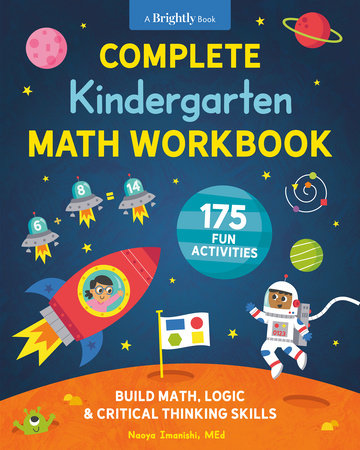3 Tips to Get Your Child Excited About Math
by Naoya Imanishi, MEd
Too often, I’ve heard parents express, “I’m not good at math. That’s why my kid isn’t good either.” But rarely do parents use this logic for, let’s say, reading. Most likely, folks who claim themselves as “bad at math” didn’t have a positive experience with math growing up. Here are three ways to help change that pattern for your child.
#1. Show Enthusiasm and Be Curious.
Math is magical! Many online videos can showcase this. Share them with your child. When you’re shopping, count groceries or compare and calculate prices with your child to provide real-world math experiences. A simple, “Wow, nine oranges and two apples make 11 fruits. And look, eight apples and three oranges also make 11 fruits!” will get your child’s gears turning. The more excited you get about numbers working together, the more your child will emulate that enthusiasm.
#2. Letting Go Can Provide More Support.
I don’t mean leaving them all alone to do their homework while you binge your favorite show. When your child needs help, don’t say they’re wrong or tell them the answer immediately. Instead, let productive struggle happen. If they’re wrong, ask, “Why do you think it should be that answer?” or “Hmm, I wonder if 61 minus 47 is really 24, how can we check that?” Thinking and talking through their solution can help them find their own mistakes. And it’ll make them better problem-solvers in the long run.
#3. Make Connections.
Connecting their ideas about numbers and valuing multiple solution paths to a problem will foster stronger number sense and problem-solving skills. We don’t have to just memorize 7+6=13. If your child excels at doubling numbers, you can cultivate their thinking to see 7+6 as 6 doubled, plus 1. Or 7+7=14, so 1 less is 13. Math isn’t about strict rules like “crossing out the zero” or “carrying the 1.” Deeper understanding will come as they learn how numbers work in unison.
As a parent of two teens, I see now that the time I took when they were young to engage their thinking about math helped them. Yes, frustration popped up along the way. However, it prepared them for success and gave them confidence in making connections with various concepts. If the time comes when you or your child struggle with math, don’t dismiss it with the “not good at math” excuse. Be curious, let go, and make connections. A friend of mine (Seth Cutler) summed it up nicely in this quote, which I pass along to you:
“What I wish for you in math is what I wish for you in life. And that is to always find relationships that are true.”
-
For More Math Fun, Check Out:

